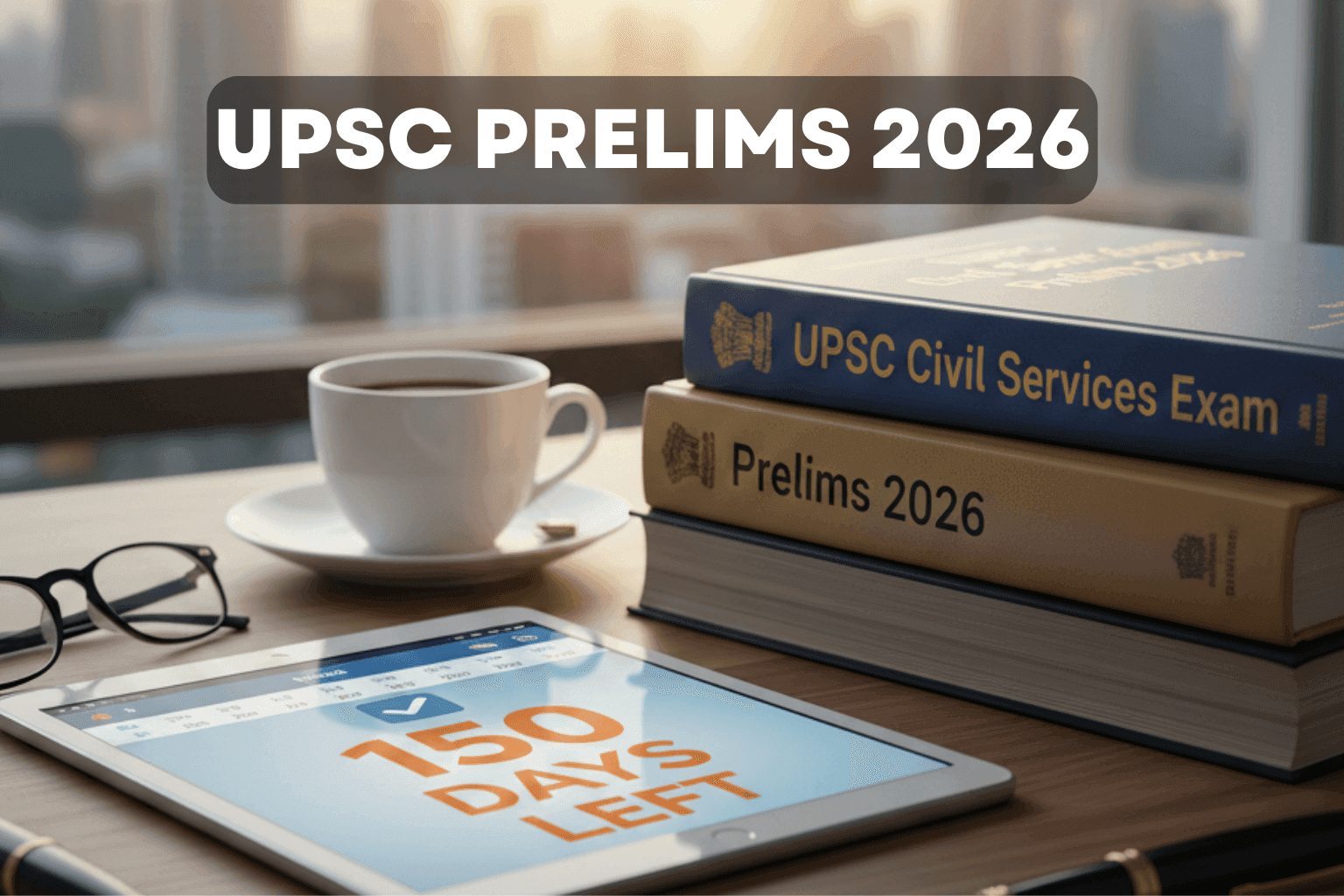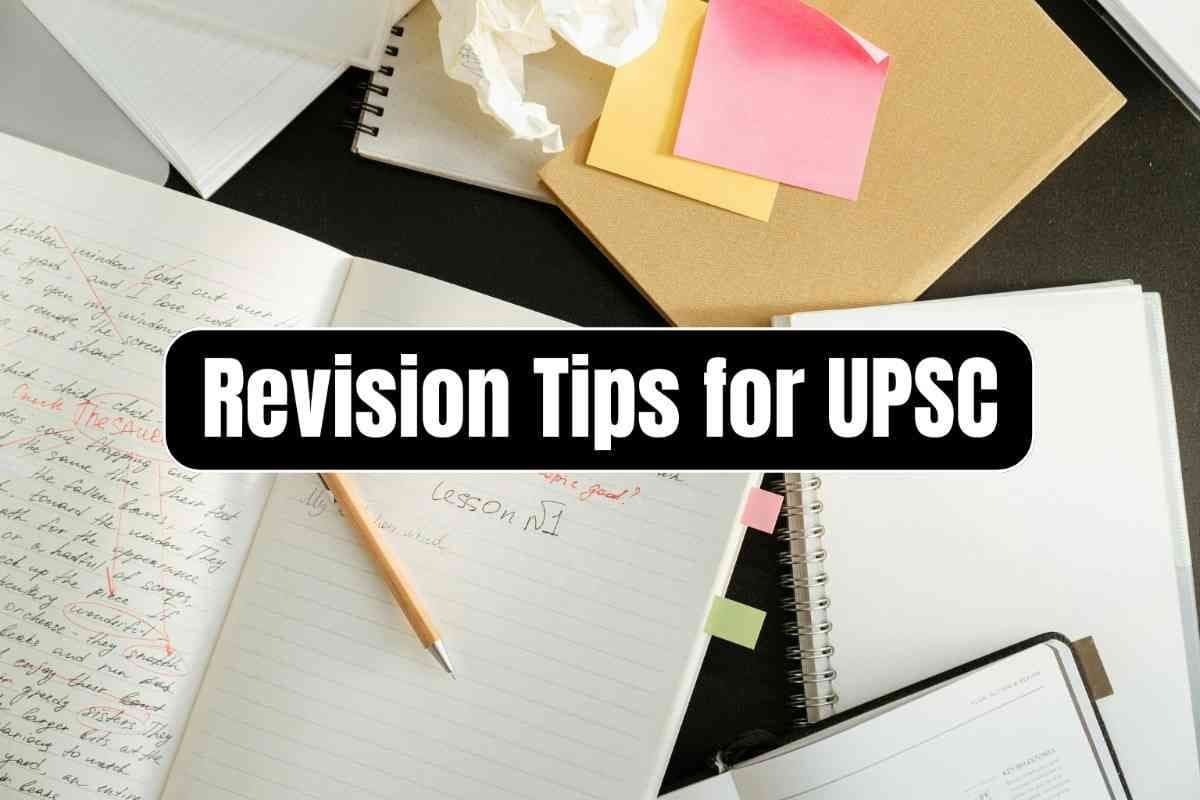Simple Strategy and Tips on Preparing History for UPSC Exam
Feb, 2025
•9 min read
Preparing for the UPSC history syllabus can feel like standing at the foot of a massive mountain. You know it’s important, but where do you even start? How do you prepare history for UPSC in a way that boosts your chances of scoring high?
The key lies in understanding the syllabus, prioritizing important topics, and using a mix of smart study techniques. In this blog, we’ll explain expert strategies and actionable tips to help you prepare history for UPSC—ancient, medieval, or modern India.
Understanding the Syllabus & Exam Pattern of History for UPSC
Whether it’s Prelims, Mains, or even the Interview, History plays a vital role in shaping a candidate’s overall performance. Moreover, candidates choosing History as optional also get two full papers (Paper I and II), increasing their weightage.
Before you dive into preparation, it’s essential to first understand the exam pattern and syllabus in detail. Without a clear grasp of what to study and how to approach it, your efforts may lack direction.
Let’s start and break down the exam structure along with the history syllabus you’ll need to cover!
Preliminary Examination
- Total Marks: 200 (General Studies Paper I)
- Number of Questions: 100
- Duration: 2 hours
- Negative Marking: 1/3rd mark deducted for each incorrect answer
- History Coverage: Approximately 10-15% of the paper
Explore the History syllabus for Prelims in detail:
|
Section |
Topics |
|
Ancient |
|
|
Medieval |
|
|
Modern |
|
Revise COMPLETE Modern History through Timeline in 1 Video for UPSC Prelims.
Mains Examination
UPSC Mains demonstrates the breadth of history covered in General Studies Paper I, ranging from ancient Indian history to significant world events that shaped modern geopolitics.
Let’s understand the exam structure and syllabus to help you prepare with precision for the Mains stage:
- General Studies Paper I Indian Heritage & Culture, History, and Geography of the World and Society
- Total Marks: 250
- Duration: 3 hours
- History Weightage: Around 40-45% of the paper covers Indian and World History
- Paper Type: Analytical and descriptive answers required
Here’s the detailed syllabus of the UPSC Mains History section:
|
Section |
Topics |
|
Ancient India |
|
|
Medieval India |
|
|
Modern India |
|
|
World History |
|
Also Read: UPSC Mains 2024-25: Effective Ethics Strategy Preparation Plan
Interview Stage
While the Personality Test or Interview stage of the UPSC exam doesn’t have a specific syllabus, your historical knowledge and analytical skills play a crucial role. Here’s how:
- Contextual Understanding: You may be asked questions related to historical events, figures, and their impacts.
- Current Relevance: Questions might explore how historical events influence contemporary issues, policies, or societal changes.
- Critical Thinking: Interviewers may ask you to evaluate historical decisions or compare different periods and their impacts on modern society.
- Problem Solving: You might be asked to discuss historical case studies, requiring you to apply historical insights to solve problems or make predictions.
Your ability to discuss history thoughtfully will make a significant impression during the Personality Test. Curious about where to cover the vast syllabus of history for UPSC? We’ve got this covered in the next section! Let’s explore
List of Recommended Books for History
To excel in history for the UPSC exam, a well-curated list of books and resources is crucial. These materials will provide a comprehensive understanding of both Indian and world history.
Here’s a detailed list of expert-recommended books to guide your study:
|
Category |
Books |
|
NCERT Books (for building the foundation) |
Ancient India
Medieval India:
Modern India:
World History:
|
|
Standard Books (for advance reading) |
|
These books and resources will equip you with the knowledge needed to tackle various aspects of history in the UPSC exam.
Mastering History for UPSC: A Winning Preparation Strategy

Now that you are familiar with the syllabus and recommended resources, it’s time to dive into the most important aspect of your preparation: the strategy. Strategic planning is key to efficiently covering the vast history syllabus and achieving success in the exam.
Here’s how to create a focused and comprehensive preparation plan:
NCERT Books for Foundational Understanding
- Begin your preparation with NCERT books from Class VI to XII to build a strong base. These books simplify complex historical events and concepts.
- Prioritize Ancient, Medieval, and Modern India sections. Ensure you understand core concepts and timelines.
- Make short summaries and highlight important facts as you read. Use these notes to quickly review essential points.
To make NCERT books an excellent starting point for your UPSC journey, must-watch What NCERTs (OLD & NEW) to study for UPSC IAS Exam - All you need to know
Use Advanced Textbooks for Deeper Knowledge
- After mastering the basics, delve into advanced textbooks like R.S. Sharma's India’s Ancient Past and Bipan Chandra's India’s Struggle for Independence for more detailed knowledge.
- Allocate fixed days in the week to cover the syllabus progressively.
- Integrate practice with Previous Year Questions (PYQs) from both Prelims and Mains to familiarize yourself with the exam pattern and identify recurring topics.
- While studying A Brief History of Modern India, solve previous years’ questions related to the freedom struggle to test your understanding.
Make Concise Notes with Mindmaps and Flowcharts
- Develop a visual timeline of historical periods, major events, and figures. This helps in quickly recalling relationships and timelines.
- For complex processes or events (like the Mughal Empire’s administrative structure), create flowcharts to understand and remember them better.
- Map significant historical events to understand their geographical and temporal context.
For example: Design a mind map for the Indian National Movement, including key leaders, movements, and events.
You might also like: Complete Handwritten Notes and Mindmaps on Buddhism and Jainism| UPSC Prelims
Practice Mock Tests and Previous Year’s Question Papers
- Take mock tests regularly to assess your knowledge and improve time management.
- Analyze question patterns and frequently asked topics to identify areas needing more focus.
- Solve previous years’ papers to understand the type of questions asked and to refine your answering strategy.
Also watch: Modern History MCQs in UPSC 100 Days Challenge with Mind Map Expert - Arpita Ma'am | UPSC
Regular Answer Writing for Better Articulation
- Write answers regularly using previous years’ questions and model answers to improve your writing skills.
- Ensure your answers are well-structured, clear, and concise, with a focus on presenting historical facts and analysis logically.
- Get feedback on your answers from mentors or peers to refine your writing style and approach.
Want to take your UPSC preparation to the next level? Get personalized guidance and real-time feedback. Share your handwritten Mains answers with SuperKalam, receive detailed feedback, and model answers in seconds.
Discuss your answers LIVE with expert mentors – all for FREE!
Effective Revision and Review
- Regularly revise your notes, mindmaps, and flowcharts to reinforce your memory and understanding.
- Practice active recalling on topics you feel less confident about during revision sessions.
- Schedule revision sessions for different sections of history ensuring that you cover all critical areas before the exam.
Revise the ENTIRE Ancient History in one go! Master the timeline with our comprehensive video for UPSC Prelims.
Feeling empowered to tackle the history section of the UPSC exam? Each step is designed to make your preparation not just effective but also engaging.
Mapping Practice for History in UPSC Preparation
Integrating map practice into your UPSC history preparation can transform abstract historical data into tangible visual insights.
Here’s how focusing on maps can enhance your learning process:
- Maps help you visualize the geographical settings of historical events
- Maps allow you to see the spatial relationships between different events and periods. Maps help in remembering timelines of historical occurrences which is useful in the Prelims exam.
- Effective use of maps in answer writing can significantly strengthen your responses.
Here’s a list of crucial maps you should focus on to boost your historical understanding and exam preparation:
|
Topic |
Maps |
|
Pre-Historic Times |
|
|
Indus Valley Civilization |
|
|
Mauryan Empire |
|
|
Vijayanagara Empire |
|
|
Gupta Empire |
|
|
Post Independence India |
|
Interactive Learning Tips for History Mastery in UPSC
To help you stand out from the competition and excel, here are five useful tips that can transform your history preparation for UPSC. Let’s turn history into a rewarding and engaging subject!
Create Your Own Historical “Storylines”
History can seem like a series of continuous events, but weaving them into cohesive storylines makes learning more engaging and memorable.
How to Implement:
- Narrative Mapping: Construct storylines around major historical periods or events. For instance, create a storyline around the rise and fall of the Mughal Empire, highlighting key figures and events in a narrative format.
- Character Development: Treat historical figures as characters in your story. This helps in remembering their roles and impacts more vividly.
Tip: Try to write a short story or a script based on a historical event or period. Share it with study groups or friends for feedback and discussion.
Study with Quiz Sessions
Turning study sessions into interactive quizzes can make learning history more enjoyable and less monotonous.
How to Implement:
- Quiz Challenges: Use SuperKalam to create quizzes & MCQs about historical facts, events, and timelines. SuperKalam provides explanations and performance analytics with MCQs, helping you track your progress and focus on areas needing improvement.
- Flashcard Games: Develop flashcards with historical events or figures. Challenge yourself to match events with dates or achievements with their leaders.
Use Visual Aids for Memorisation
Visual aids can help in retaining complex information through engaging and interactive methods.
How to Implement:
- Historical Timelines: Create digital timelines using apps or software. Include major events, figures, and changes. Tools like Prezi or Canva can help in designing these timelines.
- Documentaries and Videos: Watch documentaries or historical videos related to your syllabus.
Also watch: Revision of COMPLETE Medieval History through Timeline in 1 Video| UPSC Prelims
Connect History with Current Affairs
Linking historical events with current affairs helps in understanding their relevance and impact, making them easier to remember.
How to Implement:
- Historical Parallels: Draw parallels between historical events and contemporary issues. For instance, compare historical revolutions with modern socio-political movements.
- Current Affairs Integration: Regularly read articles and reports that relate historical contexts to current events. Analyze how past events shape present-day politics and society.
Also watch: Revision on Jainism and Buddhism in ONE VIDEO | UPSC Prelims 2024 | SuperKalam
Incorporate these interactive learning strategies into your history preparation. Dive in, understand the subject, and enjoy learning history for the UPSC exam!
Conclusion
The key to preparing history for the UPSC exam is the more you engage with it, the better you’ll understand it. Textbooks provide the depth of knowledge you need, but it’s your strategic approach—like integrating maps, practicing answer writing, and using interactive learning techniques—that will set you apart.
Stay motivated and keep pushing forward. With dedication and smart strategies, you’re well on your way to success. Keep at it, and let your passion for history drive you to excel!
Enhance Your Preparation with SuperKalam
Meet SuperKalam! Your Super Mentor provides a comprehensive learning ecosystem, you can benefit from focused and disciplined preparation strategies.
Start Now—it's FREE and take advantage of personalized guidance to crack the UPSC with confidence and clarity.
Explore SuperKalam's Resources and set yourself on the path to success!


